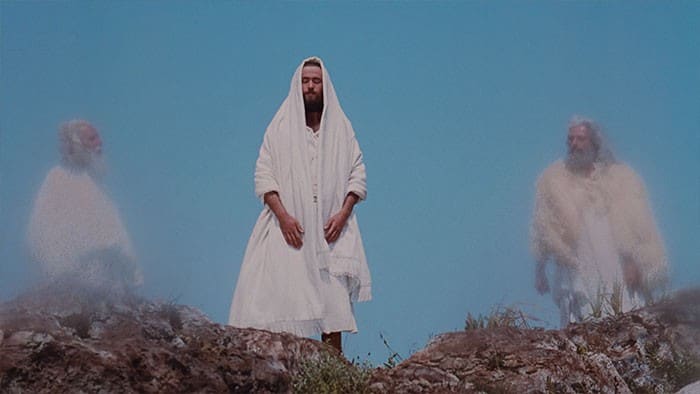What Is the Kingdom of God?

Related Posts
Subscribe To Our Weekly Newsletter
Sign up for our weekly newsletter, Jesus Film Project News, to receive encouraging stories, videos and resources in your inbox.
If you were to put all the words of Jesus into one document, one of the first things you’d notice was how often Jesus talked about the kingdom of God. In fact, it’s such an essential element of His ministry that we can’t entirely understand the New Testament without it. But it’s a topic that baffled both Jesus’s followers and His critics.
What is the kingdom of God and how should we understand it? Let’s look at this important New Testament theme.
Kingdom of God-kingdom of heaven
When you first dive into this topic, some of the language can be a little confusing. You find the term “kingdom of God” used throughout the New Testament, but Matthew tends to prefer “kingdom of heaven” in his Gospel.
Are the two terms synonymous or do they have different meanings?
Some scholars attach different significance to the two terms. They believe that most of the biblical authors were talking about a universal kingdom (the kingdom of God) while Matthew was explicitly referring to a coming millennial reign of Christ on earth (the kingdom of heaven).
The fact is that Matthew seems to use kingdom of heaven instead of the kingdom of God. For instance, Luke and Matthew document the parable of the leaven this way:
Again he asked, “What shall I compare the kingdom of God to? It is like yeast that a woman took and mixed into about sixty pounds of flour until it worked all through the dough” (Luke 13:20-21, emphasis added).
He told them still another parable: “The kingdom of heaven is like yeast that a woman took and mixed into about sixty pounds of flour until it worked all through the dough” (Matthew 13:33, emphasis added).
Another example is in the parable of the mustard seed. Mark and Luke say kingdom of God, but Matthew uses kingdom of heaven:
Again he said, “What shall we say the kingdom of God is like, or what parable shall we use to describe it? It is like a mustard seed, which is the smallest of all seeds on earth. Yet when planted, it grows and becomes the largest of all garden plants, with such big branches that the birds can perch in its shade” (Mark 4:30-32, emphasis added).
Then Jesus asked, “What is the kingdom of God like? What shall I compare it to? It is like a mustard seed, which a man took and planted in his garden. It grew and became a tree, and the birds perched in its branches” (Luke 13:18-19, emphasis added).
He told them another parable: “The kingdom of heaven is like a mustard seed, which a man took and planted in his field. Though it is the smallest of all seeds, yet when it grows, it is the largest of garden plants and becomes a tree, so that the birds come and perch in its branches” (Matthew 13:31-32, emphasis added).
These are just a couple of examples of the Gospel writers using the two terms synonymously. But even within Matthew’s Gospel, we can see Jesus himself using them interchangeably. When the rich young ruler walks away sad because Jesus has encouraged him to sell his lavish possessions and give the proceeds to the poor, Jesus turns to His disciples and says:
Truly I tell you, it is hard for someone who is rich to enter the kingdom of heaven. Again I tell you, it is easier for a camel to go through the eye of a needle than for someone who is rich to enter the kingdom of God (Matthew 19:23-24, emphasis added).
Clearly, the two terms are interchangeable. This is an important distinction to make as we explore the meaning of the kingdom of God/heaven. And to understand these terms better, we also need to examine Israel’s history.
Who will rule Israel?
When God initially established Israel, it was intended to be a nation with God as its king. In contrast to all the nations around it, Israel would be a nation ruled by God. But when God is giving the Law to Moses, He tells the prophet that Israel will eventually demand a king:
When you enter the land the Lord your God is giving you and have taken possession of it and settled in it, and you say, “Let us set a king over us like all the nations around us,” be sure to appoint over you a king the Lord your God chooses. He must be from among your fellow Israelites. Do not place a foreigner over you, one who is not an Israelite (Deuteronomy 17:14-15).
These words are a prophecy that is fulfilled in 1 Samuel. As the prophet Samuel ages, Israel begins demanding a king:
So all the elders of Israel gathered together and came to Samuel at Ramah. They said to him, “You are old, and your sons do not follow your ways; now appoint a king to lead us, such as all the other nations have” (1 Samuel 8:4-5).
Samuel takes this response personally and cries out in frustration to the Lord. God’s answer is one of the most heartbreaking passages in Scripture:
But when they said, “Give us a king to lead us,” this displeased Samuel; so he prayed to the Lord. And the Lord told him: “Listen to all that the people are saying to you; it is not you they have rejected, but they have rejected me as their king. As they have done from the day I brought them up out of Egypt until this day, forsaking me and serving other gods, so they are doing to you. Now listen to them; but warn them solemnly and let them know what the king who will reign over them will claim as his rights” (1 Samuel 8:6-9).
God not only recognizes Israel’s demand for a king as a rejection of Him, but He also knows what having a king means for Israel. He tells Samuel to make sure that Israel knows what they’re asking for.
Samuel goes back to Israel and tells them that a king is going to demand certain rights. He will:
- Make their sons serve in his armies and fight in his wars (vs. 11-12)
- Assign some of their daughters to work as perfumers, cooks, and bakers (vs. 13)
- Commandeer their best land and give it to his attendants (vs. 14)
- Take a tithe of their best produce and give it to his officials and servants (vs. 15)
- Confiscate the best of their horses and cattle (vs. 16)
- Seize a tenth of their flocks and require Israelites to care for them on his behalf (vs. 17)
In the end, Samuel promises that when it’s all said and done, they will “cry out for relief from the king you have chosen, but the Lord will not answer you in that day” (1 Samuel 8:18). But Israel will have none of it.
But the people refused to listen to Samuel. “No!” they said. “We want a king over us. Then we will be like all the other nations, with a king to lead us and to go out before us and fight our battles” (1 Samuel 8:19-20).
The rest of the Old Testament is filled with the pain and sorrow that comes from this decision. A majority of Israel’s kings were a disaster, and because of their leadership, Israel spent a lot of time in exile and captivity to other nations.
This fuels their desire for a great and future King who will free them from this cycle.
The coming Messiah King
Throughout all of this, God’s people looked forward to a King who would sit on David’s throne and restore Israel to glory and usher the kingdom into a lasting peace. Scripture is full of references to this future Monarch:
For to us a child is born, to us a son is given, and the government will be on his shoulders. And he will be called Wonderful Counselor, Mighty God, Everlasting Father, Prince of Peace. Of the greatness of his government and peace there will be no end. He will reign on David’s throne and over his kingdom, establishing and upholding it with justice and righteousness from that time on and forever. The zeal of the Lord Almighty will accomplish this (Isaiah 9:6-7).
Rejoice greatly, Daughter Zion! Shout, Daughter Jerusalem! See, your king comes to you, righteous and victorious, lowly and riding on a donkey, on a colt, the foal of a donkey. I will take away the chariots from Ephraim and the warhorses from Jerusalem, and the battle bow will be broken, He will proclaim peace to the nations. His rule will extend from sea to sea and from the River to the ends of the earth (Zechariah 9:9-10).
Unfortunately, God’s people didn’t have the context necessary to see what God was up to. Their idea of the coming Messiah’s kingdom fit within the only framework they knew: God was coming to establish a physical realm.
You can see this in Herod’s response to Jesus’ coming (Matthew 2). In his mind, this new child was coming to usurp his position as “king of the Jews.” To maintain his power, the child would need to be killed.
The kingdom of heaven is near!
When John the Baptist appeared in the wilderness, his message was clear. “Repent, for the kingdom of heaven has come near” (Matthew 3:2). The time had come. And as Jesus began His ministry, the message became even more pressing and immediate:
After John was put in prison, Jesus went into Galilee, proclaiming the good news of God. “The time has come,” he said. “The kingdom of God has come near. Repent and believe the good news” (Mark 1:14-15).
The kingdom of God had come in the person of Jesus. Throughout His ministry, He frequently talked about the kingdom. Many of His parables were metaphors explaining what the kingdom of God was like. In the parables of the hidden treasure and the pearl, He reinforced the importance and value of the domain He brought.
The kingdom of heaven is like treasure hidden in a field. When a man found it, he hid it again, and then in his joy went and sold all he had and bought that field.
Again, the kingdom of heaven is like a merchant looking for fine pearls. When he found one of great value, he went away and sold everything he had and bought it (Matthew 13:44-46).
It’s clear from Christ’s teachings that the pursuit of this kingdom should be our chief concern. In fact, during a discussion about our daily needs, Jesus made this statement:
So do not worry, saying, “What shall we eat?” or “What shall we drink?” or “What shall we wear?” For the pagans run after all these things, and your heavenly Father knows that you need them. But seek first his kingdom and his righteousness, and all these things will be given to you as well (Matthew 6:31-33, emphasis added).
His point is that even when it comes to meeting our daily requirements to live, our number-one concern should be for the kingdom of God.
So what is the kingdom of God?
Because Israel was expecting the Messiah to come, overthrow Rome, and establish an earthly kingdom, a lot of Jesus’s teaching was confusing to His listeners. One time, the Pharisees confronted Jesus about when the kingdom of God would come. (Remember, Jesus was already preaching that it was at hand.) His answer was critical:
Jesus replied, “The coming of the kingdom of God is not something that can be observed, nor will people say, ‘Here it is,’ or ‘There it is,’ because the kingdom of God is in your minds” (Luke 17:20-21).
The Pharisees were expecting a physical kingdom, but Jesus was telling them that was a misplaced expectation. They weren’t going to be able to see the kingdom. They wouldn’t be able to draw up a map that outlined His domain’s border. And yet, the kingdom of God was in their midst.
How could that be?
A kingdom without borders
The kingdom of God exists everywhere God is king, but it doesn’t have a boundary or a perimeter. It isn’t an earthly kingdom, and its subjects are everyone who worships Jesus as Lord. If you were able to take a night-time satellite picture of the kingdom of God, you’d end up with a photo of innumerable lights-one for every heart that recognizes Christ as King.
In Jesus’s discussion with Nicodemus, He shared how someone became a citizen of the kingdom of God:
Jesus answered, “Very truly I tell you, no one can enter the kingdom of God unless they are born of water and the Spirit. Flesh gives birth to flesh, but the Spirit gives birth to spirit” (John 3:5-6).
Until He returns, the kingdom of heaven is comprised of everyone who has submitted their lives to Jesus.
As we look at the kingdom of God throughout the teachings of Jesus, we discover that it includes many important concepts including (but not limited to):
- Spiritual Realm or Presence:
In some passages, it seems Jesus was referring to a spiritual or divine realm where God’s sovereignty and rule are fully realized. In this view, the Kingdom of God is not a physical place, but rather a state of being where God’s authority and principles are acknowledged and lived out in people’s hearts and lives. - Social and Ethical Transformation:
Jesus often spoke about values such as love, compassion, forgiveness, and justice. The Kingdom of God can refer to a church that submits to God’s rule so these values are upheld and practiced, resulting in transformed communities. - Future Eschatological Kingdom:
Some interpretations emphasize the future aspect of the Kingdom of God. This view suggests that the Kingdom will be fully realized at a later time, often associated with the Second Coming of Christ, when God’s ultimate reign will be established on Earth. - Present Reality and Process:
Another perspective is that the Kingdom of God is both a future hope and a present reality. It’s seen as a gradual process of God’s reign unfolding in the world as people align themselves with God’s will and values. - Personal Relationship with God:
Some interpretations focus on the idea that the Kingdom of God refers to an intimate and personal relationship with God. It’s about individuals entering into a close connection with the divine, experiencing God’s presence, and living in accordance with God’s teachings.
Anticipating the coming kingdom
Daniel prophesied about a time when “the God of heaven will set up a kingdom that will never be destroyed, nor will it be left to another people. It will crush all those kingdoms and bring them to an end, but it will itself endure forever” (Daniel 2:44).
Christians anticipate a day when the reign of God will be both physical and visible. We look forward to a time when “the earth will be filled with the knowledge of the glory of the Lord as the waters cover the sea” (Habakkuk 2:14).
Our faith will become sight and we will dwell in the physical kingdom of God where Jesus reigns as King. As the voice of the angel in Revelation describes this future reality, “The kingdom of the world has become the kingdom of our Lord and of his Messiah, and he will reign for ever and ever” (Revelation 11:15).
Paradoxically, the reign of God is already present and soon coming. During this period, the life we live in the kingdom, we live by faith. We enter His realm through the cross, and we live the life of the kingdom as sheep among the wolves. But soon, our faith will be sight and the Lord will establish His throne.
Or as John tells us:
Then I saw “a new heaven and a new earth,” for the first heaven and the first earth had passed away, and there was no longer any sea. I saw the Holy City, the new Jerusalem, coming down out of heaven from God, prepared as a bride beautifully dressed for her husband. And I heard a loud voice from the throne saying, “Look! God’s dwelling place is now among the people, and he will dwell with them. They will be his people, and God himself will be with them and be their God. ‘He will wipe every tear from their eyes. There will be no more death’ or mourning or crying or pain, for the old order of things has passed away” (Revelation 21:1-4).
This is truly something to look forward to. In the meantime, those of us who follow Jesus are called to invite others to join this kingdom and live in a way that demonstrates what it looks like to be a citizen of heaven and a subject of King Jesus.
While we wait for Jesus’s coming, or until we enter heaven, many more are coming to know Him and are waiting to meet Him on earth.
All Scripture references quote the New International Version unless otherwise noted.


